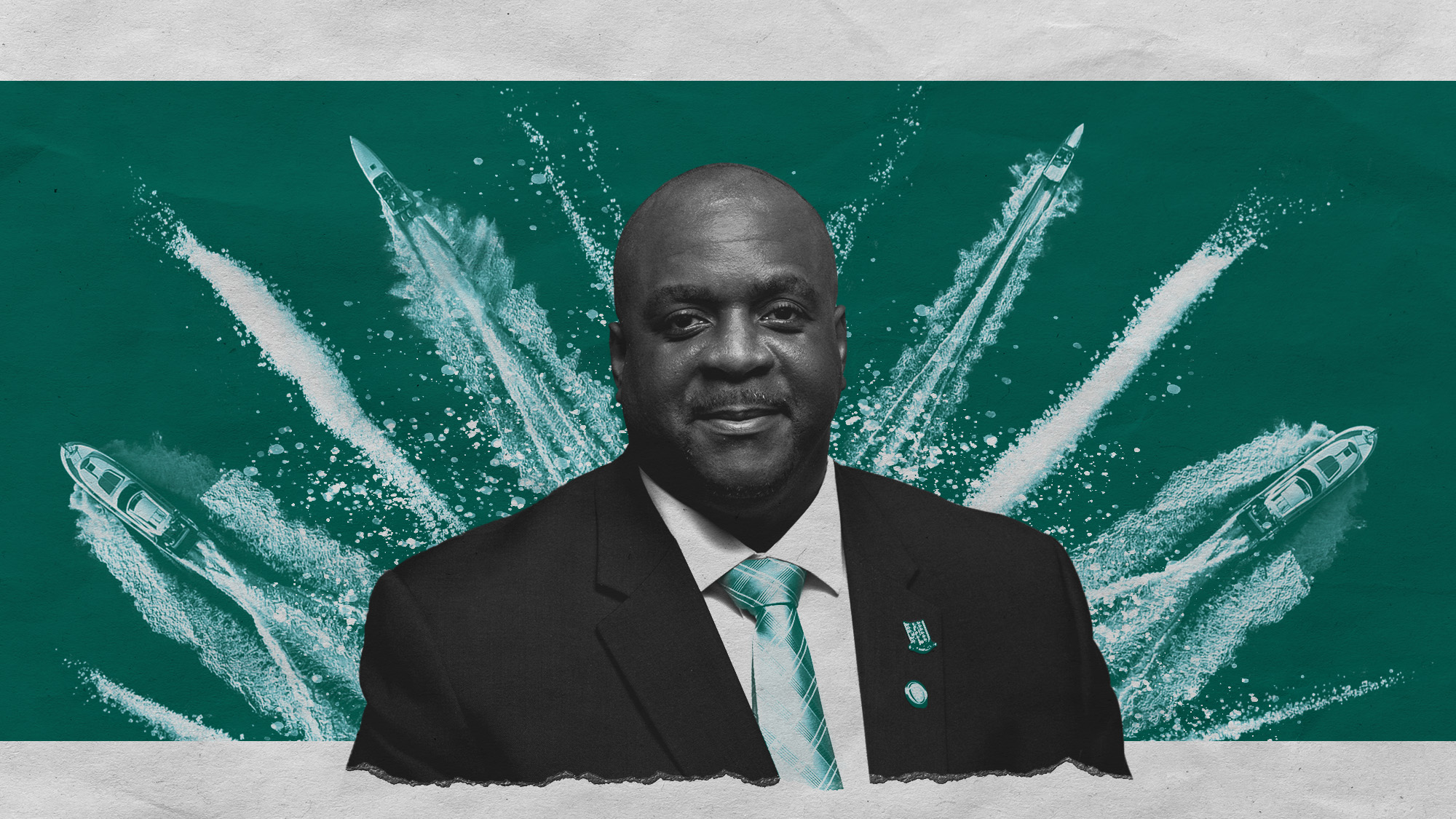Andrew Fahie: the ex-BVI premier, cocaine-filled boats and drug trafficking plot
Fahie's defense attorney claimed the British overseas territory leader was 'acting like the fictitious CIA agent Jason Bourne'

A free daily email with the biggest news stories of the day – and the best features from TheWeek.com
You are now subscribed
Your newsletter sign-up was successful
A former premier of the British Virgin Islands has been convicted on drug trafficking charges in the US, highlighting the territory's status as a "formidable cocaine trafficking hub".
Andrew Fahie, who led BVI from 2019 to 2022, was arrested in April 2022 after a US "sting operation" involving a confidential informant known as "Roberto Quintero", who posed as a trafficker of the notorious Mexican Sinaloa cartel, reported Insight Crime.
Fahie was found guilty of money laundering and conspiring to import cocaine through the tiny British overseas territory into the US by a Florida jury in February. The 53-year old faces a mandatory minimum sentence of 10 years up to life in prison, and is due to be sentenced on 29 April in Miami.
The Week
Escape your echo chamber. Get the facts behind the news, plus analysis from multiple perspectives.

Sign up for The Week's Free Newsletters
From our morning news briefing to a weekly Good News Newsletter, get the best of The Week delivered directly to your inbox.
From our morning news briefing to a weekly Good News Newsletter, get the best of The Week delivered directly to your inbox.
'Role-playing as Jason Bourne'
Fahie was charged with planning to shield "cocaine-filled boats while docked in the Caribbean islands' ports and bribing a government official", said Reuters, "in a plot intended to run thousands of kilograms of the drug through the territory."
He agreed a $700,000 (£560,000) payment to allow traffickers to use BVI ports with an undercover informant, charges filed in the US said.
Fahie's defense attorney claimed the then-premier was "acting like the fictitious CIA agent Jason Bourne" when he was approached by the man acting as a cartel member, reported the Miami Herald.
Fahie then "took role-playing as Bourne even further when he agreed to accept millions in bribes" from the supposed trafficker, so that he could uncover whether "the smuggler was out to destroy him on behalf of the British government", his lawyer said.
A free daily email with the biggest news stories of the day – and the best features from TheWeek.com
Fahie was "concerned that the British didn't like him", his attorney told jurors in closing remarks. Jurors, however, "didn't buy the Bourne defense", said The Miami Herald and unanimously found him guilty.
'An outsized player in the cocaine trade'
Fahie's case "exemplifies how high-level corruption makes the tiny British Virgin Islands – with a population of only about 30,000 people – an outsized player in the international cocaine trade", said Insight Crime.
There have "long been questions" about the way the BVI had been run, said the BBC's diplomatic correspondent James Landale at the time of Fahie's arrest. The territory, made up of more than 40 islands, is located just to the east of Puerto Rico in the Caribbean. It operates as a parliamentary democracy, with the premier acting as the head of the elected government, explained Landale – alongside a UK-appointed governor.
Leaks of documents known as the "Panama Papers" and "Paradise Papers" revealed the islands to be "a popular tax haven".
Harriet Marsden is a senior staff writer and podcast panellist for The Week, covering world news and writing the weekly Global Digest newsletter. Before joining the site in 2023, she was a freelance journalist for seven years, working for The Guardian, The Times and The Independent among others, and regularly appearing on radio shows. In 2021, she was awarded the “journalist-at-large” fellowship by the Local Trust charity, and spent a year travelling independently to some of England’s most deprived areas to write about community activism. She has a master’s in international journalism from City University, and has also worked in Bolivia, Colombia and Spain.